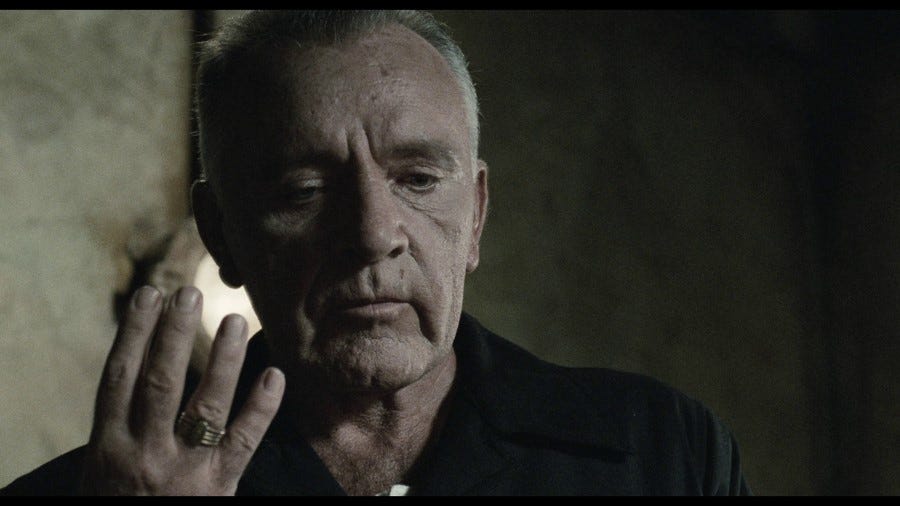Welcome back to The FLARE, a call out to the hearts of readers everywhere. Thanks for sticking with me through the break. Hopefully you were able to catch up on the readings and can join. Links to previous parts are below.
We pick up where Winston and Julia have been arrested by the Thought Police.
As a reminder, I am using the 75th anniversary Signet Classic published edition and the Audible audiobook read by Simon Prebble.


Chapters’ Summary
Pages 225-260 (up to chapter 3) or 8:05:20 to 9:57:10 in the audiobook
Elements of Torture
Winston has been taken to what he believes in the Ministry of Love, a prospect he has dreaded throughout the book. While he does not know it yet, he will be subjected to various types of torture, ones he knows will squeeze out false confessions.
He sees a carousel of characters float in and out of the cell which is lined with an uncomfortable bench that hurts to sit on but one can only stand so long. Telescreens in the holding cell bark orders at prisoners for even minor infractions like covering one’s face with one’s hands.
There are two groups among them: the proles and Party prisoners, the latter of which Winston is a part. Their behaviors are distinct, with Party members sitting in silent terror while the proles resist the guards, carry on loud conversations, smuggle food, and defy the telescreen instructions. Some even muse about the labor camps not being so bad.
Winston greets Ampleforth, a work colleague who was arrested for allowing the word “god” to remain in a poem since no other word made sense. Ampleforth is soon taken away to room 101, an as yet unknown but feared place.
Parsons has also been arrested and sees Winston in the holding cell. He is fearful and dumbfounded, revealing his daughter turned him into the Thought Police. He apparently uttered “down with Big Brother” in his sleep. Parsons is proud of his daughter, however, saying that he’s raised her with the right principles. Parsons believes he is guilty and that the Party would not arrest an innocent man. He is thankful that his alleged thoughtcrime was caught before going any further. He tells Winston that thoughtcrime sneaks up on a person. Parsons is unceremonious removed and never heard from again.
Time Confusion
The low hum of sound from the lights and ventilation allow no differentiation of day and night. Winston cannot tell if he’s been imprisoned for days or weeks and as the time passes, he goes in and out of awareness. He cannot tell the whether events have occurred over minutes or hours. The lights are never lowered and the phrase he dreamt of comes back to him: We shall meet in the place where there is no darkness.
Starvation
Winston has not eaten since before the arrest and feels the swell and contraction of his hunger. When the pangs subside, he is okay, but when they intensify, so does his panic. While there for a relatively shorter period of time, he does observe a prisoner who has been starved over far longer, appearing skeletal and drawing everyone’s attention.
The man is ordered to go to room 101 and we learn he’s been starved for weeks. He promises to confess to anything they desire, pleads to be killed, and even volunteers his family to be sacrificed. In the end, a guard breaks his fingers during the prisoner’s struggle and he is led to room 101.
Physical Abuse
O’Brien suddenly comes into the cell and Winston is in shock. But he has not been arrested, he is in charge. Winston then receives the first of many blows from one of the guards. Beating sessions with the guards occur as a merciless routine where Winston endures countless blows with fists, boots, or batons on all parts of his body. Sometimes he is beaten into near unconsciousness, given a brief respite, then drug out to be beaten again. During the course of these beatings, he confesses to a host of crimes. As the more serious physical abuse becomes less frequent and more a threat, he is still ceaselessly questioned and abused into humiliation.
Winston develops conflicting feelings about O’Brien, who he believes is just beyond his reach. He sees O’Brien as orchestrator of the whole affair, of the one who both inflicts the pain and takes it away. O’Brien finally does appear and begins his phase of the torture with Winston strapped to a bed. His body is being pumped with painful electrical current.
Psychological breakdown
O’Brien recounts his seven-year observation of Winston, where we can assume the “darkness” phrase was planted through a telescreen while Winston was asleep. He goes on to fill in details from Emmanuel Goldstein’s book, revealing that he wrote it, rather, the Party did.
He dangles the photo of the three supposed traitors, Aaronson, Rutherford, and Jones, taunting him with the so-called evidence of falsified records and repeatedly questioning Winston’s memory. Winston is stunned and unable to argue against what he feels is a superior mind. O’Brien then says the photo never existed and drops it down a memory hole.
O’Brien tells Winston his is mad and that he knows what Winston is thinking. Winston forms some twisted logic by which he concludes he might be insane. O’Brien says he will be cured of his maladies and only then, after his mind is pure, will he be shot. The Party does not make martyrs, which was the mistake of their predecessors. The gallows are no place for the unrepentant in Oceania.
Who controls the present, controls the past.
O’Brien
O’Brien continues the interrogation and calls into question Winston’s perception of reality and the nature of truth. He tells Winston that reality exists in the mind and the mind is controlled by the Party. It follows that nothing exists without the consent of the Party. He inflicts enormous pain when Winston does not give satisfactory answers, taking the position of a teacher who is coping with a promising but frustrating student. He lectures Winston on the failings of former regimes and reiterates his commitment to Winston’s reeducation. After denying the existence of the three traitors, he recalls their final conversion and pleads for death.
O’Brien then administers a blow that induces temporary disorientation and makes Winston more pliable to questioning. Winston still mentally resists, holding on to his core logic. He is even permitted to ask O’Brien questions. He asks about Julia, who he is told quickly betrayed him. He is also told that the existence of the Brotherhood will be purposefully kept from him and remain a mystery.
Winston asks about room 101 and O’Brien tells him everyone knows.
My thoughts:
One of the most disturbing things about O’Brien is the way he endears himself to Winston. He knows the oranges and lemons rhyme. He elicits the love of his captives and confuses his cruelty with love. His is an embodiment of Big Brother as an object of both admiration and love but also fear and disgust. O’Brien is a perfectly crafted tool for the Party and I shudder to think how many there are like him.
At their last meeting, Winston was completing O’Brien’s sentences. He is so thoroughly convinced in this resistance that he forgets even his poor judge of character. He also does not imagine that maybe everything he experienced was a lie. O’Brien probably spoke to him through the telescreen while he was sleeping to plant that quote in his subconscious and was undoubtedly listening to his conversations with Julia.
“We are the dead.” Winston spoke these words three times in the book: once when Winston’s first meeting with Julia in the woods, again in Charington’s room, then a finally time before his arrest. O’Brien said it during their meeting in his study and it was not a shared sentiment, some wavelength overlap, but a different type of plant in the conversation. We think the same way, Winston might convince himself. This was part of establishing this psychological and emotional link to the point where Winston believes O’Brien knows what he’s thinking.
O’Brien seems to employ some mentalist trick of reading Winston’s expression and apparently reading his mind. But it is just that, a trick. He’s been watching Winston for 7 years and knows his pattern of thinking. Over a much shorter period of time, I have someone in my life who I play a game of charades with. He cannot think of the English word and I extract it. He wonders something and I am able to complete the thought. It isn’t hard if you’re open and observant. You also must listen carefully to what people say, how they say, and create a log of their lexicon. It is unconscious study of an individual that we perform daily. O’Brien made it his business to know Winston, so by only a look, he can make a very good guess.
Parson’s daughter turning him in is the Party’s boot on the face of people being completely realized. We learned that the family could not be abolished but that a child was raised as an agent. The connection between people is not one of love or obligation but suspicion. I shudder to think of how the Parsons daughter will think of her role in her father’s arrest and possible torture. Will she be proud? Will she relay this to comrades gleefully? I wonder if she will fall into a pit of guilt and be haunted by it. She was manipulated by an oppressive system into dismantling her own family.
Discussion prompts:
What do you think is in room 101?
How do you think interrogators are identified and trained?
Where is Julia?
What’s next?
Part 6 of 6, pages 260-298 or 9:57:10 to 10:52:07 on the audiobook
Personal essay or maybe an update… eh
Poetry for paid subscribers
Connect: Notes • Medium • Twitter • Instagram • Threads
Support: PayPal • Ko-fi
Parts one through four of the 1984 read:











